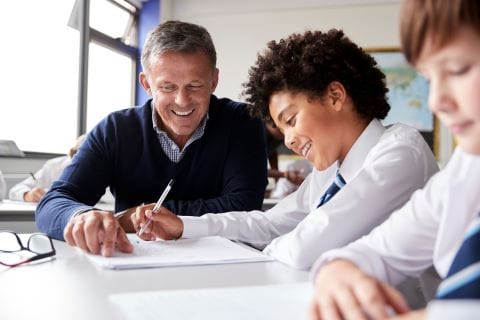
Most adults who are working with kids would agree that one of their primary goals is to help youth develop the capacities and tools they need to be successful and happy as they grow. There are threads of this sentiment in most mission statements of schools and districts, youth organizations and enrichment centers as well as family and child counselors.
While there are numerous ways to approach this purpose, professionals are increasingly turning their attention to 21st century skills, which empower kids with capacity in areas like:
- Learning & innovation skills, specifically critical thinking, communication, collaboration and creativity
- Life & career skills like flexibility, initiative, social and cross-cultural skills, productivity as well as leadership
As the name would suggest, these proficiencies are vital to effectively navigating the future of work and our globalized economies. Kids who possess these talents will be better equipped to be successful in their classrooms and meet the demands of the future of work as studies from groups like the American Management Corporation, the National Academy and the World Economic Forum indicate.
It’s important to recognize that in addition to advancing traditional views of achievement, learning, life and literacy aptitudes can also impact the well-being of youth. For example, people who have strong social capabilities tend to have better mental and physical health than those that do not.
What’s particularly inspiring about life and learning skills is that a whole community of adults can support youth in their development. In the past, it was common to think that the talents productive people needed were rooted in instruction in reading, writing and mathematics. Those proficiencies were often perceived to fall in the realm of traditional education systems.
By expanding our view of what essential learning looks like, more people can feel connected to the cause because these capabilities can be taught in spheres inside and outside of the classroom environment. In fact, many youth organizations, nonprofits and enrichment centers are already dedicated to improving these vital aptitudes.
Before adults can start to influence specific skill building, however, they need to do some groundwork to establish strong connections with youth.
3 Steps Adults Can Take to Set the Foundation for Success
To positively influence youth development, I invite adults to start by:
- Modeling life and learning skills
- Building rapport
- Helping kids understand themselves
#1 – Modeling life and learning skills
Kids are smart. They are often quick to see (and sometimes point out) when someone is being inauthentic or failing to practice what they preach. Before adults can hope to educate children, it’s essential that they themselves walk the talk. Be mindful to increase individual capacity in learning and innovation as well as life and career skills, and actively demonstrate these skills when interacting with adolescents.
#2 – Building rapport
Adults are not likely to take advice from someone they do not trust or do not believe has their best interest at heart, so it should be no surprise that a child is likely to take a similar approach. Having authority over a classroom or club is not reason enough to trust a person. Instead, it’s vital to spend time strengthening relationships with youth and showing a sincere interest in their needs. Once rapport is built, learning can start.
#3 – Helping kids understand themselves
Self-awareness is one of the most important capacities for long-term achievement, and it’s a core element of life and learning capabilities. When people understand who they are and their innate tendencies, it allows them to uncover their strengths as well as potential blind spots. The insights can also reveal that others may approach similar situations in different ways. This core understanding serves as a launch point to essential life and learning skills by enabling kids to be productive by leaning on their strengths, considering alternative perspectives, thinking critically and so much more.
1 New Tool to Support Youth
Emergenetics® has designed a Youth Facilitator Certification to empower individuals to use Emergenetics theory to support kids. In the one-day session, attendees discover how they can build rapport and develop meaningful connections with adolescents. They will also become familiar with our Youth Report, which reveals how youth ages 10-18 prefer to think and behave, and learn how to explain the results in one-to-one or small group settings.
Certified facilitators can teach children about the distinct strengths that come from their preferences, reveal the brilliances that arise from multiple approaches and coach them to apply this knowledge to boost their self-awareness and self-agency.
The session will support educators, counselors, nonprofit professionals or anyone who is seeking additional tools and foundational knowledge to help kids improve their life and learning aptitudes. To find out more about the program or our other offerings for youth, I invite you to join our community of facilitators. Together, we can partner with kids to co-create successful futures.
Interested in exploring our Youth Facilitator Certification? See our upcoming certification dates or fill out the form below to speak with one of our team members today!
 Print This Post
Print This Post
